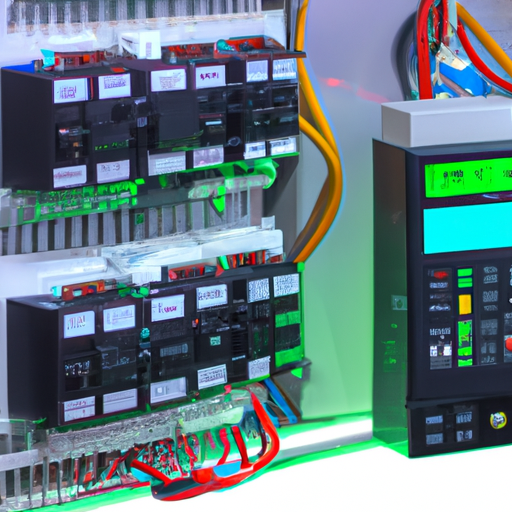
Title: Power Controller Market Outlook: Harnessing Efficiency and Sustainability

1. Growing Demand for Energy Efficiency (200 words) The rising global demand for energy, coupled with the need to reduce carbon emissions, has propelled the adoption of power controllers. Industries are increasingly recognizing the importance of optimizing power consumption to enhance operational efficiency and reduce costs. Power controllers enable precise control and regulation of electrical systems, minimizing energy wastage and improving overall efficiency. As a result, the market for power controllers is expected to witness substantial growth in the coming years.
2. Increasing Focus on Renewable Energy Integration (200 words) The transition towards renewable energy sources, such as solar and wind, necessitates the integration of power controllers to manage the intermittent nature of these energy sources. Power controllers enable efficient power flow management, ensuring a stable and reliable supply of electricity. With governments worldwide promoting renewable energy adoption, the demand for power controllers is expected to surge, creating lucrative opportunities for market players.
3. Industrial Automation and IoT Integration (200 words) The rapid advancement of industrial automation and the Internet of Things (IoT) has revolutionized the power controller market. Power controllers are now integrated with smart systems, allowing real-time monitoring, control, and optimization of power consumption. This integration enhances energy efficiency, reduces downtime, and enables predictive maintenance. As industries increasingly embrace automation and IoT technologies, the demand for advanced power controllers is set to rise significantly.
4. Technological Advancements and Innovations (200 words) The power controller market is witnessing continuous technological advancements and innovations. Manufacturers are focusing on developing intelligent power controllers that offer enhanced functionality, improved efficiency, and greater flexibility. Features such as remote monitoring, energy analytics, and advanced control algorithms are becoming standard in modern power controllers. Additionally, the integration of artificial intelligence and machine learning capabilities is further enhancing the performance and efficiency of power controllers.
5. Challenges and Opportunities (200 words) While the power controller market presents immense growth potential, it also faces certain challenges. The high initial cost of advanced power controllers can deter small-scale industries and households from adopting these technologies. Moreover, the lack of awareness and understanding about the benefits of power controllers can hinder market growth.
However, these challenges also present opportunities for market players. Increasing awareness through educational campaigns and government initiatives can help overcome the lack of understanding. Additionally, cost reduction through economies of scale and technological advancements can make power controllers more affordable, further driving market growth.
Conclusion (100 words) The power controller market is poised for significant growth as industries and households increasingly prioritize energy efficiency and sustainability. The integration of power controllers with renewable energy sources, industrial automation, and IoT technologies is driving market expansion. Technological advancements and innovations are further enhancing the functionality and efficiency of power controllers. While challenges exist, such as high initial costs and lack of awareness, these can be overcome through awareness campaigns and cost reduction efforts. The future of the power controller market looks promising, with immense potential for growth and widespread adoption.